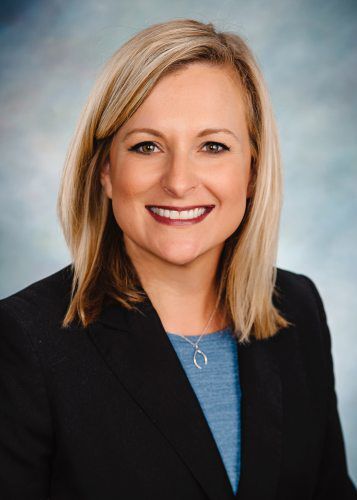In a year defined by a health crisis and an economic downturn, countless businesses have been forced to close their doors.
Upcycle Dubuque will join the ranks of departed businesses on Dec. 12, marking an abrupt end for the creative reuse center and art gallery.
For owner Kristina Beytien, closing the storefront was already going to be difficult. A demand from the City of Dubuque to immediately repay the $27,000 balance of an outstanding loan has put her in a much harder spot.
Beytien intended to continue paying off the loan in monthly installments. However, city officials determined that Upcycle Dubuque was in default of its loan agreement.
“At a time when the city should be rallying around businesses, they are choosing to hurt them instead,” Beytien said. “It boils down to a choice.”
City Attorney Crenna Brumwell said she could not speak directly about the loan agreement with Upcycle Dubuque. However, she did speak generally about the city’s efforts to support local businesses and, at the same time, make sure businesses remain in compliance with such agreements.
When it comes to these deals, Brumwell said, there is very little choice or gray area involved.
“It is very similar to a mortgage for a home,” she said. “If you don’t comply with all the requirements of your mortgage, the bank is going to foreclose on that loan … It’s a contract.”
Brumwell acknowledged that local businesses “periodically” fail to comply with their development agreements, but said she couldn’t quantify exactly how often that happens.
STAYING IN LINE
The City of Dubuque supports local businesses by offering a variety of local economic development programs, which provide everything from tax rebates to downtown rehabilitation grants. It also serves as the conduit through which local businesses receive funds from higher levels of government.
Brumwell said the money supporting many economic development programs is funneled down from state and federal entities. Oftentimes, these agencies outline provisions or compliance requirements that a city government must apply when passing funds along to a business.
Local governments are subject to reporting and auditing requirements that would unearth whether officials aren’t overseeing the programs properly.
If a city has a repeated track record of noncompliance, the repercussions could be major.
“If there is an audit and noncompliance is found in federal programming, there is always a possibility of the loss of federal funding,” she said. “I’m not talking about a single source … my understanding is that, across the board, you are not eligible for any federal funding.”
A PATH FORWARD?
It wasn’t long ago that Upcycle Dubuque and the City of Dubuque were on the same team.
City officials in 2018 approved a $35,000 microloan to Upcycle Dubuque to offset the costs associated with start-up operations.
Upcycle Dubuque opened at 1838 Central Ave. late that year and helped build a sense of momentum in the area known as the Central Curve.
Kristina’s husband, Craig, had purchased and rehabbed the building that Upcycle Dubuque occupied, turning a derelict building into a commercially viable one.
The Beytiens also recruited new business tenants to the corridor and helped form an association of business owners there.
But COVID-19, and the corresponding economic troubles, hit the business hard, according to Beytien.
On Oct. 12, she wrote a letter to city officials informing them of her plans to close the storefront in December. She noted that the couple would continue to run the business virtually from their home in Shullsburg, Wis.
In the correspondence, Beytien asked to continue paying off the loan in monthly installments.
Ten days later, a letter from Economic Development Director Jill Connors indicated the city’s intent to call in the loan based on their assessment that Upcycle Dubuque had defaulted.
“The loan was funded with Community Development Block Grant funds,” the letter states. “These funds cannot serve outside the city limits. With no physical location or employee in Dubuque’s city limits, the business will be in default per the terms of the loan.”
Beytien now has a matter of months to pay off the loan.
“I am probably going to end up being in a situation where I’m forced into bankruptcy because I have no other choice,” she said. “We want to make good on the loan, but if it’s all or nothing, we don’t have all (of the money).”
The Beytiens requested an appeal to the city’s stance but were informed that no such appeal process exists.
They have written to local officials, the Iowa Office of Ombudsman and the office of Sen. Joni Ernst to share their story. In a responding letter, Ernst wrote that she has initiated an inquiry on Beytien’s behalf with the Department of Housing and Urban Development and requested assistance securing her loan in order to prevent bankruptcy.
“We are turning to anyone we can,” said Beytien.



